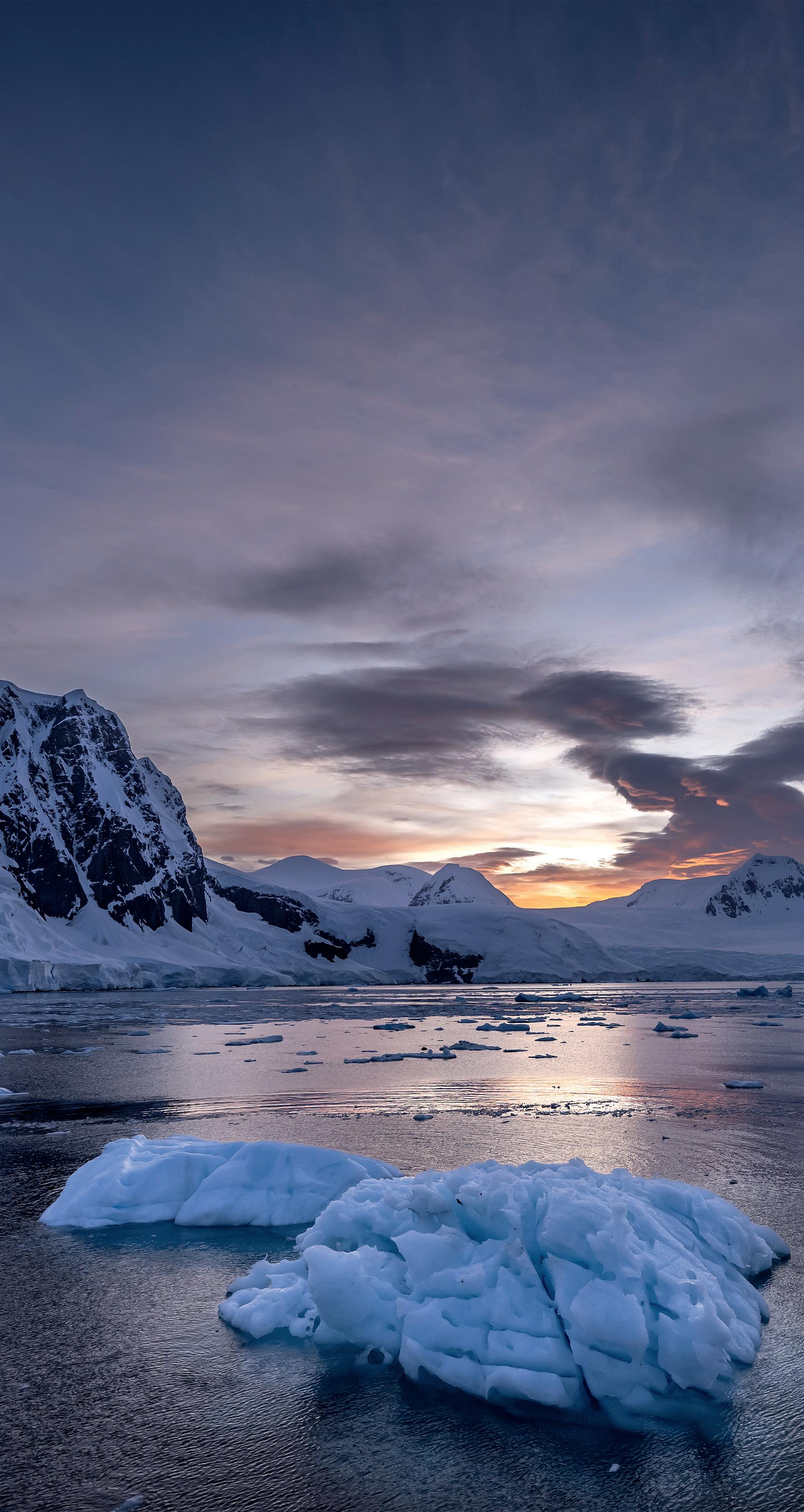
Most mornings since the end of March, before Will Hobbs has done much at all other than make a coffee, he scrolls his inbox looking for one particular email.
Generated and sent automatically from a colleague, the email arrives just after 4am and gives the latest data from a US government satellite showing how much sea ice is floating around Antarctica.
"Unprecedented is a word that gets bandied around a lot, but it doesn't really get to just how shocking this is," said Hobbs, a sea ice scientist at the University of Tasmania. "It is very much outside our understanding of this system." In February, the floating sea ice around Antarctica hit a record low for the second year running. Since satellites started tracking the region's ice in 1979, there had never been less ice.
As it does every year, as the temperatures around the continent plunged towards winter, the sea ice started to return. But the moderate alarm from scientists at that record low has turned to astonishment. Some are worried they could be witnessing the start of a slow collapse of Antarctica's sea ice.
By August, there would usually be about 16.4 million sq km of Antarctic sea ice. But last week, there was just 14.1 million sq km. An area bigger than Mexico has failed to freeze.
"There's a sense that something weird is going on. It's dropping way below anything we have seen in our record," said Dr Walt Meier, a senior scientist at the National Snow and Ice Data Centre (NSIDC) at the University of Colorado.
Meier's job is to help collate and present data from US satellites that have been recording sea ice since November 1978. It is the same data that gets presented in Hobbs' daily email and the same data that has been turned into charts and spread on social media around the world in recent weeks.
Denne historien er fra August 11, 2023-utgaven av The Guardian Weekly.
Start din 7-dagers gratis prøveperiode på Magzter GOLD for å få tilgang til tusenvis av utvalgte premiumhistorier og 9000+ magasiner og aviser.
Allerede abonnent ? Logg på
Denne historien er fra August 11, 2023-utgaven av The Guardian Weekly.
Start din 7-dagers gratis prøveperiode på Magzter GOLD for å få tilgang til tusenvis av utvalgte premiumhistorier og 9000+ magasiner og aviser.
Allerede abonnent? Logg på

The Saudi football World Cup is an act of violence and disdain
Well, that's that then. In the event there were only two notes of jeopardy around Fifa's extraordinary virtual congress last week to announce the winning mono-bids, the vote without a vote, for the right to host the 2030 and 2034 football World Cups.

AI has made the move into video and it's worryingly plausible
I recently had the opportunity to see a demo of Sora, OpenAI's video generation tool, which was released in the US last Monday, and it was so impressive it made me worried for the future.

With tyrant Assad ousted, Syrians deserve support and hope
Last week, time collapsed. Bashar al-Assad's fall recalled scenes across the region from the start of the Arab spring almost 14 years ago. Suddenly history felt vivid, its memories sharpened. In fact it no longer felt like history.

TV
The Guardian Weekly team reveals our small-screen picks of the year, from the underground vaults of post-apocalyptic Fallout to the mile-high escapism of Rivals

Albums
Murky love stories, nostalgic pop and an in-your-face masterpiece captured our critics' ears in 2024

Film
Visual language, sound, light and rhythm are to the fore in the best movies of the year

Hidden delights Our 24 travel finds of 2024
Guardian travel writers share their discoveries of the year, from Læsø to Lazio

'It's really a disaster' The fight to save lives as gang war consumes capital
Dr James Gana stepped out on to the balcony of his hospital overlooking a city under siege. \"There's a sensation of 'What's next?'. Desperation is definitely present,\" the Médecins Sans Frontières (MSF) medic said, as he stared down at one of scores of camps for displaced Haitians in their country's violence-plagued capital.

Trailblazers The inspiring people we met around the world this year
From an exuberant mountaineer to a woman defiantly facing the guns of war, here are some of the brave individuals who gave us hope in a tumultuous 2024

Votes of confidence
From India to Venezuela and Senegal to the US, more people voted this year than ever before, with over 80 elections across the world. With rising authoritarianism and citizen-led resistance revealing its vulnerabilities and resilience in the face of unprecedented challenges, has democracy reached its breaking or turning point?